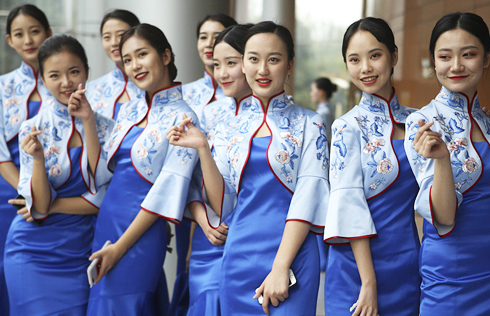Frank Facts on Frankenfoods
Tightened controls
On May 18, the Entry-Exit Inspection and Quarantine Bureau in Harbin, northeast China's Heilongjiang province, seized and destroyed 21 boxes of illegally imported GM corn seeds. The boxes, which in total weighed 115 kg, were imported by two seed suppliers in Harbin from US companies.
Under Chinese laws, seeds entering China require certification from both importers and exporters. The GM corn seeds seized in May lacked any certification, according to quarantine officials.
Jiang Gaoming, a professor at the Institute of Botany of the Chinese Academy of Sciences, said that the bust could lead to tougher regulations on transgenics.
As early as 2001, the State Council, China's cabinet, introduced a regulation to ensure the safety of GM food, with strict provisions for researching, testing, producing and marketing such products. It stipulated that joint domestic-international studies on GM crops in China should receive approval from the MOA.
The National Development and Reform Commission issued a report in 2011, saying that China needs to enhance the management of GM food safety, adding that toxicological research remains in its initial stages.
"Neither group nor individual may apply GM technologies to staple foods," read a draft of the country's first Grains Law, which was submitted for public feedback in February 2012. The legislation has yet to be finished.
The draft would require that all activities related to GM seeds, including scientific research, field trials, production, sales, imports and exports, be carried out in accordance with the country's regulations.
Last November, a new regulation issued by the General Administration of Quality Supervision, Inspection and Quarantine expanded the range of goods subject to quarantine upon entering the Chinese mainland, including GM foodstuffs for the first time.
Local agricultural authorities have also taken stricter control of GM grains. In northeast China's Jilin Province, a major grain-producing area, provincial authorities routinely inspect rice and corn to ensure GM varieties do not enter the market.
Zheng Fengtian, a professor with the School of Agricultural Economics and Rural Development of Renmin University of China, urges authorities to continue to take a cautious approach to GM foods.
"More research needs to be conducted on GM organisms before putting such products on the market. With more attention from the public and media, greater policy control will be seen," said Zheng.
























